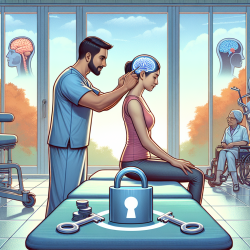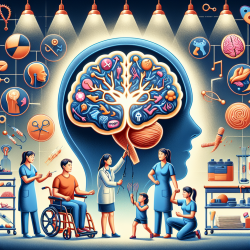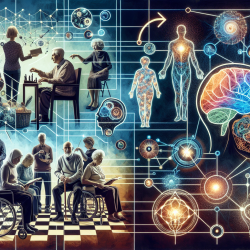Understanding Brain Injury Rehabilitation: Insights from Spain
Acquired Brain Injury (ABI) is a significant health concern affecting millions worldwide. In Spain alone, approximately 500,000 individuals suffer from ABI, with the majority caused by strokes. The study "Perceptions of recovery and rehabilitation in people with brain injury in Spain" offers valuable insights into the rehabilitation process from the patients' perspective, which can be pivotal for practitioners aiming to enhance therapeutic outcomes.
Key Findings from the Study
The study, conducted through qualitative interviews with 33 ABI patients, identified four major themes:
- Physiotherapy Treatment: Patients expressed varying experiences with physiotherapy, often influenced by the availability of services and family support. The study highlights the importance of personalized treatment plans and the significant role families play in the recovery process.
- Life Changes: ABI leads to profound changes in patients' physical, financial, and personal lives. Understanding these changes is crucial for tailoring rehabilitation programs that address not just physical recovery but also emotional and social reintegration.
- Feelings about Their Condition: Patients reported a range of emotions, from hope to despair. Practitioners need to be aware of these feelings to provide holistic care that includes psychological support.
- Aspirations for the Future: Despite challenges, many patients hold aspirations for personal and professional growth, emphasizing the need for rehabilitation programs that support these goals.
Implications for Practitioners
For speech-language pathologists and other rehabilitation professionals, these findings underscore the importance of a comprehensive approach to ABI treatment. Here are some actionable insights:
- Enhance Family Involvement: Educate and involve family members in the rehabilitation process to improve outcomes and provide continuous support.
- Address Emotional Needs: Incorporate psychological support into rehabilitation programs to help patients cope with emotional challenges.
- Customize Rehabilitation Plans: Develop individualized treatment plans that consider the patient's unique physical, emotional, and social needs.
- Facilitate Social Reintegration: Design programs that help patients regain independence and reengage with their communities.
Encouraging Further Research
The study highlights the need for further research into the lived experiences of ABI patients. Practitioners are encouraged to engage in qualitative research to deepen their understanding of patient needs and improve therapy outcomes.
To read the original research paper, please follow this link: Perceptions of recovery and rehabilitation in people with brain injury in Spain. A qualitative study.










